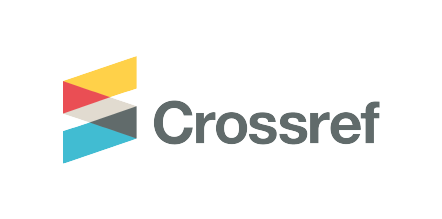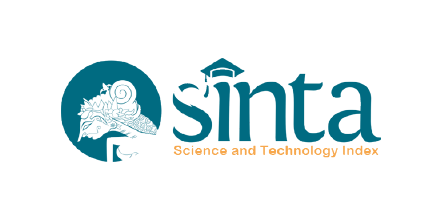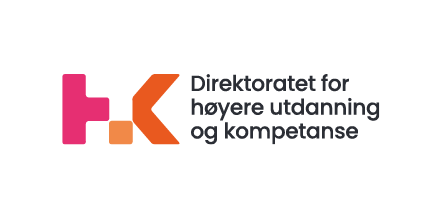An Analyiss of Pre-Service Teacher Education for Inclusion of Children With Hearing Impairment
DOI:
https://doi.org/10.21776/ub.ijds.2018.5.1.5Keywords:
Teacher Education, Inclusion, Qualitative Approach.Abstract
Proponents of inclusion in special needs education argue that it is a human right for children with special needs to attain education with their ordinary peers. Underlying inclusion is the assumption thast teachers have the knowledge for addressing the diverse needs of learners in their classrooms. This study explored the provisions that might enable pre-service teacher trainees in Uganda to acquire knowledge for implementing inclusion for children with hearing impairment and the challenges that may hinder them from achieving that goal. The sample consisted of five teacher trainers and six teacher trainees. Data was collected using focus group discussions and interviews and analyzed following the thematic analysis procedures. The findings show that trainees might acquire knowledge for implementing inclusion from provisions made in the syllabus for special needs education and the college. Challenges in the teacher education system and negative attitudes may, however, hinder the achievement of this goal.
References
UNESCO. (1994). The Salamanca Statement and Framework for Action on Special Needs Education. Paris: UNESCO
Watkins A, Donnelly V. Core Values as a Basis for Teacher Education for Inclusion. Global Education Review. 20014; 1 (1): 76-92.
Uganda Bureau of Statistics. (2015). The Statistical Abstract, 2015. Kampala: UBOS
Barnett, S. (2002). Communication with deaf and hard-of-hearing people: a guide for medical Education. Academic Medicine. 2002; 77(7): 694-700.
Girgin M C. (2007). Speaking rates of Turkish prelingually hearing-impaired children. A Paper presented at the International Educational Technology (IETC) Conference, Nicosia ; May 3-5, 2007.
Cole E B, Flexer C. (2007). Children with Hearing Loss: Developing Listening and Talking. San Diego, CA: Plural
Silvestre N, Ramspott A, Pareto I. (2006). Conversational skills in a semi structured interview and self concept in deaf students. Journal of Deaf Studies and Deaf Education. 2006; 12(1): 38-54.
] Wauters L N, Knoors H. (2007) Social integration of deaf children in inclusive settings. Journal of Deaf Studies and Deaf Education. 2007; 13(1): 21-36.
Lucas T, Villegas A M, Freedson-Gonzalez M. (2008). Linguistically responsive teacher education: preparing classroom teachers to teach English language learners. Journal of Teacher Education. 2008; 59(4); 361-373
Arbeiter S. Hartley S. (2002). Teachers' and pupils' experiences of integrated education in Uganda. International Journal of Disability, Development and Education. 2002; 49(1): 61-78.
Oliver M, Williams M. (2005). Teaching the mentally handicapped child: challenges teachers are facing. International Journal of Special Education. 2005; 20(2): 19-31.
Forlin C. (2000). Inclusion: Identifying potential stressors for regular class teachers. Educational Research. 200; 43 (3): 235-245
World Health Organization. (2011). World Report on Disability. Geneva, WHO
Brown K S, Welsh L A, Hill K H, Cipko J P. (2008). The efficacy of embedding special education instruction in teacher preparation programmes in the United States. Teaching and Teacher Education. 2008; 24(8): 2087-2094
Woodcock S, (2013). Trainee Teachers' Attitudes Towards Students with Specific Learning Disabilities. Australian Journal of Teacher Education. 2013; Vol .38 (8): 16-29
Acedo C, Amadiao M, Oppperti R, Brady J, Duncombe L, Weyermann M, Xu X (Eds.). (2009). Defining an Inclusive Education Agenda: Reflections Around the 48th Session of the International Conference on Education. Geneva: UNESCO, 2009
Floria L, Rouse M. (2009). The Inclusive Practice Project in Scotland: Teacher Education for Inclusive Education. Teaching and Teacher Education 2009; 25 (4): 594-601
European Agency for Development in Special Needs Education. (2010). Teacher Education for Inclusion- International Literature Review, Odense: European Agency for Development inSpecial Needs Education
Korthagen F, Loughran J, Russell T. (2006). Developing Fundamental Principles for Teacher Education Programs an Practices. Teaching and Teacher Education. 2006; 22 (8): 1020-1041
Bronack S, Riedl R, Tashner J. (2006). Learning in the Zone: A Social Constructivist Framework for Distance Education in 3-Dimensional Virtual World. Interactive Learning. 2006; Vol.14,(3): 219-232
Alvesson M, Skoldberg K. (2009). Reflexive Methodology (2nd ed). London: Sage
Kershner R (2008). What do Teachers Need to Know about Meeting the Special Educational Needs an Disability. British Journal of Special Education. 2008; 33, (4): 168-172.
Casey C E, Childs R A. (2007). Teacher education programme admission criteria and what beginning teachers need to know to be successful. Canadian Journal of Educational Administration and Policy. 2007; 67: 1'24
Wormnæs S. (2008). Cross-cultural collaboration in special teacher education: An arena for facilitating reflection?. International Journal of Disability, Development and Education. 2008; 55(3): 205'225.
Boling E. (2007). "Yeah, but I still don't want to deal with it". Changes in Teacher Candidates Conceptions of Inclusion. Teaching Education. 2007; 18 (3): 217-231.
Jones, T G, Fuller M L. (2003). Teaching Hispanic Children. Boston: Allyn and Bacon.
Blantilinger, E, Jimenez R, Klingner J, Pugach M, Richardson V. (2005). Qualitative studies in special needs education. Exceptional Children. 2005; 71(2): 195-207
Kvale, S (Ed.). (1996). Issues on Validity in Qualitative Research. Student literature, Lund, Sweden.
Marshall, C, Rossman G B. (1994). Designing Qualitative Research. Thousand Oaks: Sage.
Miles, M B, Huberman,A M. (1984). Qualitative Data Analysis: A Source Book of New Methods. London: Sage.
Braun, V, Clarke V. (2006). Using thematic analysis in psychology. Qualitative Research in Psychology. 2006; 3(2): 77-101.
Boeije, H. (2010). Analysis in Qualitative Research. London: Sage Publications.
Deng, Z. (2004). Beyond training: Singaporean teacher preparation in the era of new educational initiatives. Teaching Education. 2004; 15(2): 159-173.
Downloads
Published
How to Cite
Issue
Section
License
Copyright (c) 2018 Stackus Okwaput

This work is licensed under a Creative Commons Attribution-NonCommercial 4.0 International License.















